Filter by
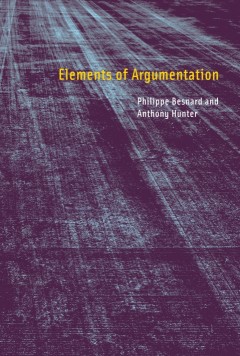
Elements of argumentation
Here the authors introduce techniques for formalizing deductive argumentation in artificial intelligence, emphasising emerging formalizations for practical argumentation. They discuss how arguments can be constructed, how key intrinsic and extrinsic factors can be identified, and how these analyses can be harnessed in the real world.OCLC-licensed vendor bibliographic record.
- Edition
- -
- ISBN/ISSN
- 9780262268400
- Collation
- 1 online resource (298 pages)
- Series Title
- -
- Call Number
- -

Tales from a robotic world :how intelligent machines will shape our future
"A glimpse into the future of intelligent machines, and a journey through the laboratories and researchers that are building them. The book offers a mix of fiction and nonfiction narrative: readers can "see" a world, a few decades away, where intelligent machines have become reality, and learn about the science brewing in today's labs and the technical and socioeconomic challenges, often throug…
- Edition
- -
- ISBN/ISSN
- 9780262371803
- Collation
- 1 online resource.
- Series Title
- -
- Call Number
- -
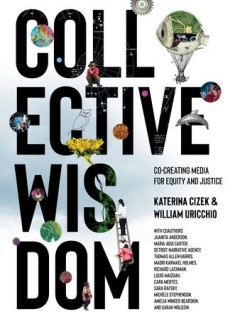
Collective wisdom :co-creating media for equity and justice
"Collective Wisdom tracks co-creation in media-making, efforts that reach beyond limits of singular authorship, an ancient and under-documented practice"--OCLC-licensed vendor bibliographic record.
- Edition
- -
- ISBN/ISSN
- 0262369869
- Collation
- 1 online resource.
- Series Title
- -
- Call Number
- -
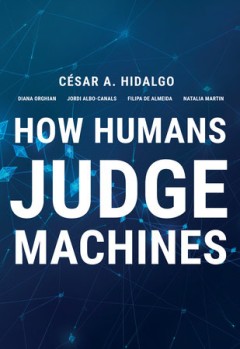
How humans judge machines
"80 experimental scenarios help us understand how humans judge AIs as opposed to other humans in the same situation"--OCLC-licensed vendor bibliographic record.
- Edition
- -
- ISBN/ISSN
- 0262363267
- Collation
- 1 online resource.
- Series Title
- -
- Call Number
- -

Virtual Art: From Illusion to Immersion
An overview of the art historical antecedents to virtual reality and the impact of virtual reality on contemporary conceptions of art.Although many people view virtual reality as a totally new phenomenon, it has its foundations in an unrecognized history of immersive images. Indeed, the search for illusionary visual space can be traced back to antiquity. In this book, Oliver Grau shows how virt…
- Edition
- -
- ISBN/ISSN
- 9780262274265
- Collation
- 1 online resource (xiv, 416 pages) :illustrations.
- Series Title
- -
- Call Number
- -
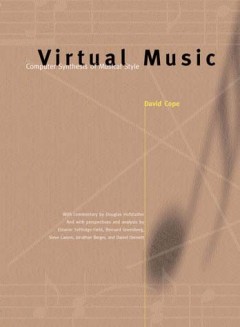
Virtual Music: Computer Synthesis of Musical Style
Virtual Music is about artificial creativity. Focusing on the author's Experiments in Musical Intelligence computer music composing program, the author and a distinguished group of experts discuss many of the issues surrounding the program, including artificial intelligence, music cognition, and aesthetics. The book is divided into four parts. The first part provides a historical background to…
- Edition
- -
- ISBN/ISSN
- 9780262255943
- Collation
- -
- Series Title
- -
- Call Number
- -
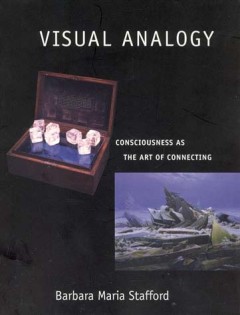
Visual Analogy: Consciousness as the Art of Connecting
A groundbreaking book exploring the discovery of sameness in otherness. Recuperating a topic once central to philosophy, theology, rhetoric, and aesthetics, this groundbreaking book explores the discovery of sameness in otherness. Analogy poses an intriguingly ancient and modern conundrum. How, in the face of cultural diversity, can a unique someone or something be perceived as like what it is…
- Edition
- -
- ISBN/ISSN
- 9780262284196
- Collation
- -
- Series Title
- -
- Call Number
- -
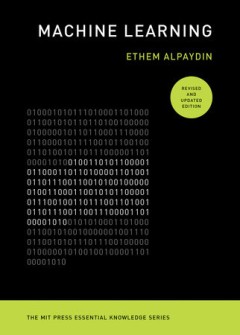
Machine Learning (Revised And Updated Edition)
"An updated introduction for generalists to this powerful technology, its applications and possible future directions"--OCLC-licensed vendor bibliographic record.
- Edition
- Revised and updated edition.
- ISBN/ISSN
- 9780262365369
- Collation
- 1 online resource.
- Series Title
- -
- Call Number
- -
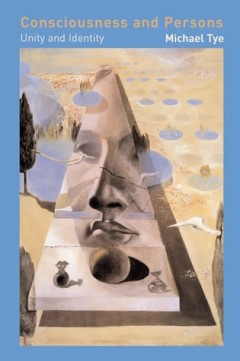
Consciousness and Persons: Unity and Identity
"A Bradford book."In Consciousness and Persons: Unity and Identity, Michael Tye takes on the thorny issue of the unity of consciousness and answers these important questions: What exactly is the unity of consciousness? Can a single person have a divided consciousness? What is a single person? Tye argues that unity is a fundamental part of human consciousness--something so basic to everyday expe…
- Edition
- -
- ISBN/ISSN
- 9780262285308
- Collation
- 1 online resource (xv, 203 pages) :illustrations.
- Series Title
- -
- Call Number
- -
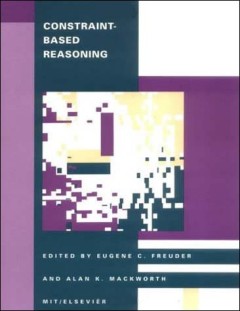
Constraint-Based Reasoning
"A Bradford book."Reprinted from Artificial intelligence, volume 58, numbers 1-3, 1992.Constraint-based reasoning is an important area of automated reasoning in artificial intelligence, with many applications. These include configuration and design problems, planning and scheduling, temporal and spatial reasoning, defeasible and causal reasoning, machine vision and language understanding, quali…
- Edition
- -
- ISBN/ISSN
- 9780262288446
- Collation
- 1 online resource (403 pages) :illustrations
- Series Title
- -
- Call Number
- -
 Computer Science, Information & General Works
Computer Science, Information & General Works  Philosophy & Psychology
Philosophy & Psychology  Religion
Religion  Social Sciences
Social Sciences  Language
Language  Pure Science
Pure Science  Applied Sciences
Applied Sciences  Art & Recreation
Art & Recreation  Literature
Literature  History & Geography
History & Geography